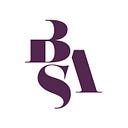The Yoga Field as a training camp: a practice-based understanding of ‘religion’ and ‘spirituality’ in modern forms of yoga
At the British Sociological Association Sociology of Religion conference this year, the theme of which was Beyond Binaries in the Sociology of Religion, I presented an extract from my research on the pedagogies of modern forms of yoga, arguing for a practice-based approach to the study of ‘religion’ and ‘spirituality’.
Building from the work of Pierre Bourdieu and Michel Foucault, as well as their synthesis in the thought of Peter Sloterdijk, a practice-based approach to the study of religion and spirituality postulates the need to momentarily dispense from labels and scholarly categories, to instead explore what happens in the social worlds, or fields, where social actors’ conduct unfolds.
More specifically, a practice-based approach is interested in how social worlds emerge from the repeated enactment of micro-physical and micro-political practical-discursive repertoires and their pre-conscious, embodied and pre-reflective — as well as conscious, cognitive and reflective — transmission, social reproduction and transformations within the context of specific pedagogical environments.
In the case of my own research, the privileged social world explored is what I call the Yoga Field, namely a “hybrid field” (Pedrini, Brown and Aimini 2020) constituted by spiritual/religious, therapeutic/medical and fitness/leisure practical-discursive logics of what counts as yoga and of its legitimate deployments (for spiritual or religious, medical or therapeutic, and/or fitness or leisure purposes). In momentarily setting aside the categories of religion and spirituality while accounting — via ethnographic, biographical interviews and discursive methodologies — for the internal structuring and the logic of practice of the Yoga Field, it became apparent how this field is first and foremost a training camp: a space characterised by a plethora of different discourses and practices transmitted by yoga teachers to their students, routinely and repetitively performed by social actors within specific schools and organisations.
Providing a practice-based understanding of the Yoga Field does not only equip us as scholars to see beyond labels and scholarly categories — that is, explore what lies behind them in specific communities of practice — but it also helps to bridge the divide between discourse and practice. In my research, this binary division is challenged by merging Bourdieu’s praxeological and dispositional sociology with Foucault’s historical and discursive methodology, attempting to emphasise the mutually reinforcing and circular relationships occurring between practices and discourses as they unfold within specific pedagogical environments and relationships of apprenticeship.
From this perspective, discourses are incorporated into the flesh of yoga practitioners, as much as practices are continuously referring — more or less explicitly — to specific philosophical understanding of the nature of the self, others and the world. According to the theoretical perspective presented here, there is no practice without a discourse on practice as much as there is no discourse without its translation into experience; that is, a theorisation of, and on, practice is inherently bound together with the embodied, sensuous and somaesthetic translation of specific discourses into practice. At this intersection, labels such as religion and spirituality lose their appeal, while social actors’ conduct and the discursive universe in which they are immersed, become the sociologist’s primary concern.
Matteo Di Placido, PhD is a researcher at University of Turin, Department of Cultures, Politics and Society. He can be contacted at matteodiplacido@gmail.com.
https://www.researchgate.net/profile/Matteo-Di-Placido
https://unito.academia.edu/MatteoDiPlacido
Bibliography
Pedrini, L., Brown, D.H.K., and Aimini, G. (2020). Leading the left: sociability and the micropolitics of cultural reproduction in grassroots boxe popolare coaching. Sport, Education and Society 25(8): 889–903. Doi: 10.1080/13573322.2019.1672147.
